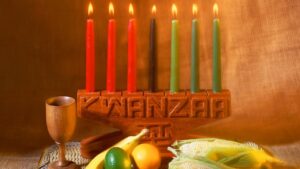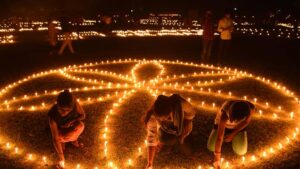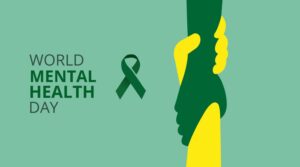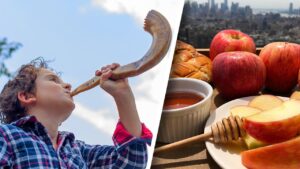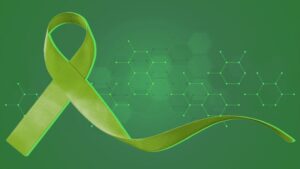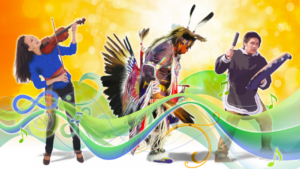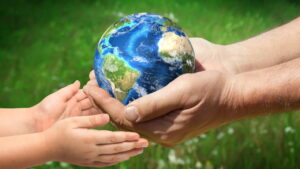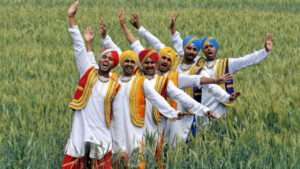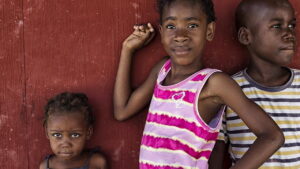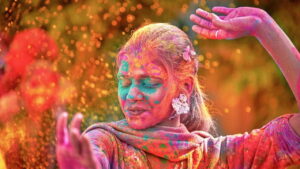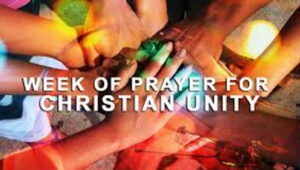National Day for Truth and Reconciliation 2022
Land Acknowledgement
Let us begin by acknowledging the traditional territory of the Indigenous Peoples of this land. We acknowledge that The Broadview Village programs and offices are situated on the lands of the Mississaugas of the Credit, the Anishnaabe, the Haudenosaunee Confederacy and the Wendat. We also recognize the enduring presence of all First Nations, Métis and the Inuit Peoples.
Thank you, Miigwetch
Land acknowledgements: uncovering an oral history of Tkaronto
National Day for Truth and Reconciliation
September 30
Each year, September 30 marks the National Day for Truth and Reconciliation.
The day honours the children who never returned home and Survivors of residential schools, as well as their families and communities. Public commemoration of the tragic and painful history and ongoing impacts of residential schools is a vital component of the reconciliation process.
For more information about Canadian history and the Residential School System from The Orange Shirt Society see the video below.
What can I do?
Each year, September 30 marks the National Day for Truth and Reconciliation.
The day honours the children who never returned home and Survivors of residential schools, as well as their families and communities. Public commemoration of the tragic and painful history and ongoing impacts of residential schools is a vital component of the reconciliation process.
Wear orange – September 30 became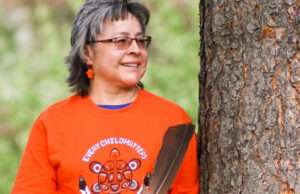 known as Orange Shirt Day because of the experience of Phyllis Webstad, a Northern Secwpemc (Shuswap) from the Stswecem’c Xgat’tem First Nation (Canoe Creek Indian Band). On her first day of school, Phyllis arrived dressed in a new orange shirt, which was taken from her. It is now a symbol of the stripping away of culture, freedom and self-esteem experienced by Indigenous children over generations. On Sept. 30, Canadians are encouraged to wear orange to raise awareness of the tragic legacy of the Canadian Residential School System.
known as Orange Shirt Day because of the experience of Phyllis Webstad, a Northern Secwpemc (Shuswap) from the Stswecem’c Xgat’tem First Nation (Canoe Creek Indian Band). On her first day of school, Phyllis arrived dressed in a new orange shirt, which was taken from her. It is now a symbol of the stripping away of culture, freedom and self-esteem experienced by Indigenous children over generations. On Sept. 30, Canadians are encouraged to wear orange to raise awareness of the tragic legacy of the Canadian Residential School System.
Learn about the Residential School History and Truth and Reconciliation (Click here)
For a period of more than 150 years, First Nations, Inuit and Métis Nation children were taken from their families and communities to attend schools which were often located far from their homes. More than 150,000 children attended Indian Residential Schools. Many never returned.
Donate to Indigenous Organizations (Click here)
There are a number of wonderful charities, causes, and funds that can be donated to where the money will go toward helping to support Indigenous communities across the country.
Find nonprofit and charity organizations near you, who need volunteers in areas such as addressing local water challenges in Indigenous communities, providing programs that support Indigenous spiritual, emotional, physical and mental well-being, and education.
Sign Petitions for Safe Drinking Water (Click here)
 Internationally, the right to water is recognized by the United Nations. It entitles everyone, without discrimination, access to safe, sufficient, physically accessible and affordable water. In Canada, while our water quality is ranked among the best in the world, First Nations across the country struggle to access a safe supply.
Internationally, the right to water is recognized by the United Nations. It entitles everyone, without discrimination, access to safe, sufficient, physically accessible and affordable water. In Canada, while our water quality is ranked among the best in the world, First Nations across the country struggle to access a safe supply.
First Nations face disproportionately higher numbers of drinking water advisories, and are subjected to these advisories for longer periods of time than non-Indigenous people. This is due to inadequate and chronic under-funding, regulatory voids and a lack of resources to support water management. The number of water-borne diseases in First Nations communities is 26 times higher than the national average, and people living on reserve are 90 times more likely to have no access to running water compared to non-Indigenous people in Canada. In many of these First Nations, water has elevated levels of heavy metals, including iron and manganese, and contaminants like E. coli.
Credit:
Mario Swampy, a council member from Samson Cree Nation, co-authored this article.
Kerry Black is assistant professor and Canada Research Chair, Integrated Knowledge, Engineering and Sustainable Communities, University of Calgary.
For full article go to: Tip of the iceberg: The true state of drinking water advisories in First Nations
Attend Indigenous Events (Click here)
Several upcoming festivals and events celebrate Indigenous culture and the contributions, accomplishments and talent of First Nations, Inuit and Métis Peoples in theatre, film, music, sport and science.
Learn about the Residential School History and Truth and Reconciliation
Read:
The Salvation Army in Canada and Indigenous Peoples
A resource provided by the Social Issues Committee and Territorial Indigenous Ministries The Salvation Army Canada and Bermuda Territory
Learn about Canada's Indigenous Peoples
Learn from these videos
Every Child Matters: Truth – Act One
Canadian Residential School History
Phyllis Webstad – Missing Residential School children
Phyllis Webstad Orange Shirt Day Presentation
TRC Mini Documentary – Senator Murray Sinclair on Reconciliation
Sen. Murray Sinclair: How can Canadians work toward reconciliation
Donate to Indigenous Organizations
Volunteer
Sign Petitions for Safe Drinking Water
Government of Canada: Indigenous Deserve CLEAN drinking water
Justin Trudeau: Clean water for Indigenous communities drinking from the Great Lakes Basin.
Help the First Nations in Canada secure a clean water source
Help Preserve Long Term Clean Water On Reserves
Canadian Federal Government: Implement an updated National Water Policy
Achieve clean drinking water for North Caribou Lake First Nation
Clean safe drinking water for ALL First Nations communities NOW !!
FIRST NATIONS WATER AND FOOD CRISIS IN CANADA
Provide Canadian Indigenous communities with clean drinking water
End the First Nations Water Crisis
Access to clean drinking water for Indigenous peoples in Manitoba
Trudeau: Time To End Drinking Water Advisories In First Nations
Demand Clean Drinking Water on All First Nations Reserves in Canada Immediately
Events
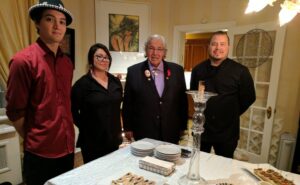 Fridays, Saturdays and Sundays at Crawford Lake Conservation Area from 11am-6pm until October.
Fridays, Saturdays and Sundays at Crawford Lake Conservation Area from 11am-6pm until October.
Main dishes include Elk Sausage and 7 Sisters Salad with roasted butternut squash, sweet corn, pumpkin seeds, sunflower seeds, spinach, shredded carrots, dried cranberries and lemon-olive oil dressing. With Wild Rice Salad or Sweet Potato Salad on the side, and Wild Rice Wild Blueberry pudding for dessert. Beverages are strawberry juice, sweetgrass iced tea, and Moccasin Jo Mohawk roasted coffee.
Turtle Protectors is an Indigenous led stewardship program that is supported by Msit No’kmaq, the Indigenous Land Stewardship Circle, Indigenous Elders and community members.
This initiative is also supported by Toronto Animal Services, Parks, Forestry and Recreation, the Indigenous Affairs Office at the City of Toronto, and the High Park Nature Centre.
The Medicine Singers groundbreaking debut LP on Stone Tapes, produced by Yonatan Gat, embodies decades of musical genres influenced by Native American music, offering what Pitchfork called a “vivid new context for the sound of the powwow drum, highlighting the debt that rock music owes to Native American music.”
This monumental album connects experimental and traditional music in previously unheard ways, acting as a guided tour de force. Taking listeners through the many different musical styles with roots (unknown until recently) in Native American music. From psychedelic punk to spiritual jazz, from minimalism to electronic music.
Crown Lands is a Canadian rock music duo from Oshawa, Ontario,
The band consists of vocalist and drummer Cody Bowles, and guitarist, bassist and keyboardist Kevin Comeau. Bowles is Mik’maq and Two-Spirit, while Comeau is Jewish. With prog-rock influences, the duo compose music and lyrics inspired by Indigenous resistance to colonialism. They have stated that their name, “Crown Lands”, communicates a desire to disrupt the concept of Canadian “crown land”, or government-held lands stolen from First Nations.
Crown Lands won the Juno Award for Breakthrough Group of the Year at the Juno Awards of 2021. The band was also nominated for Rock Album of the Year.

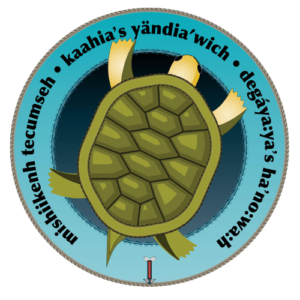
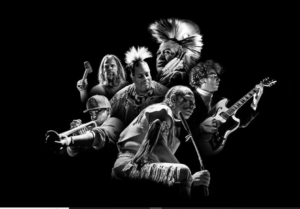

 Red Dress Day, also known as the National Day of Awareness for
Red Dress Day, also known as the National Day of Awareness for 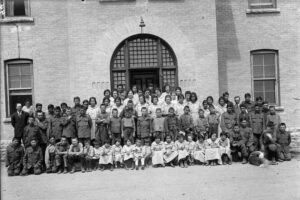
 Pongal (
Pongal (

